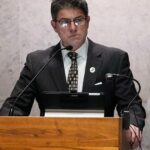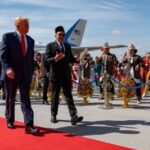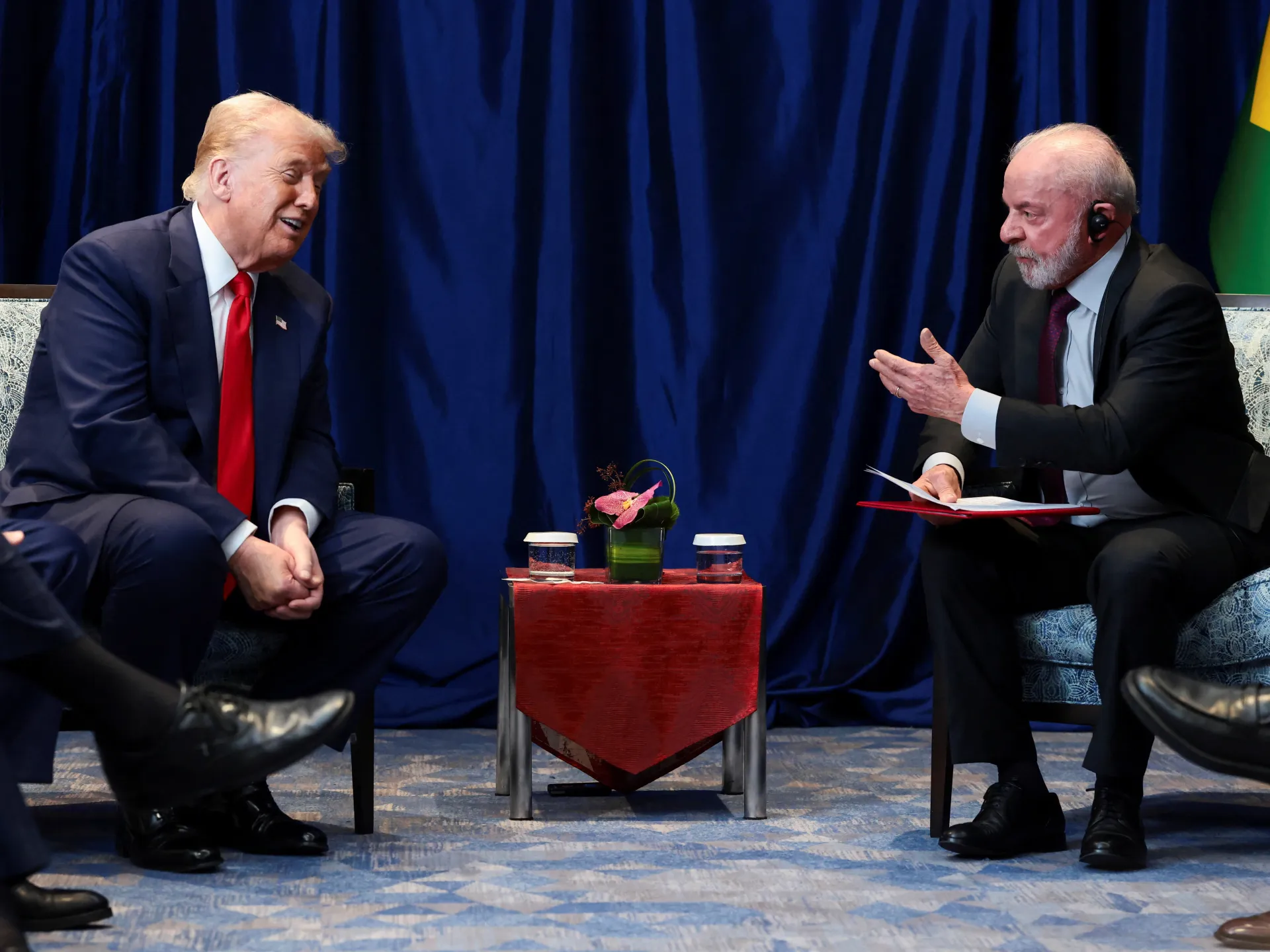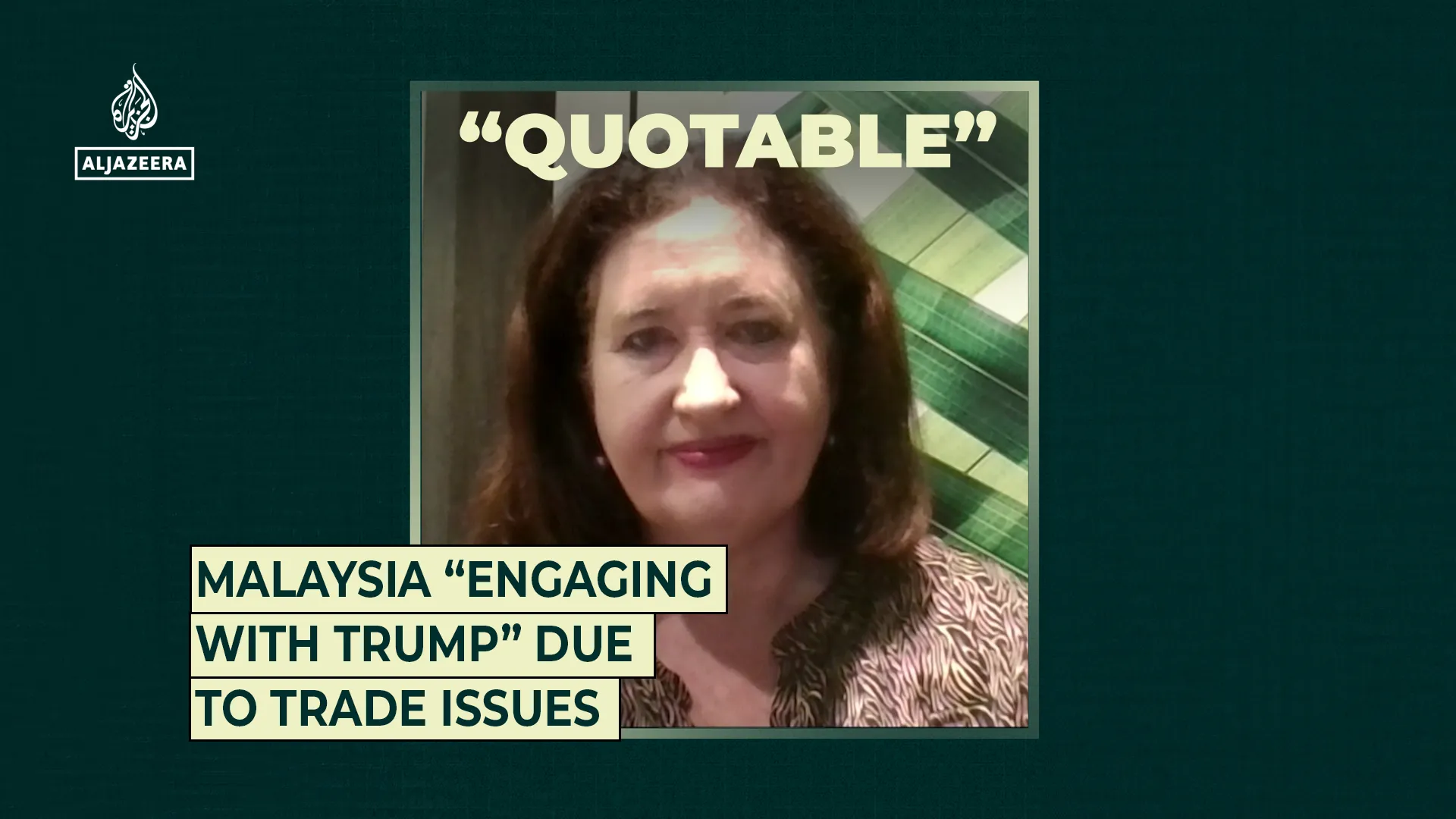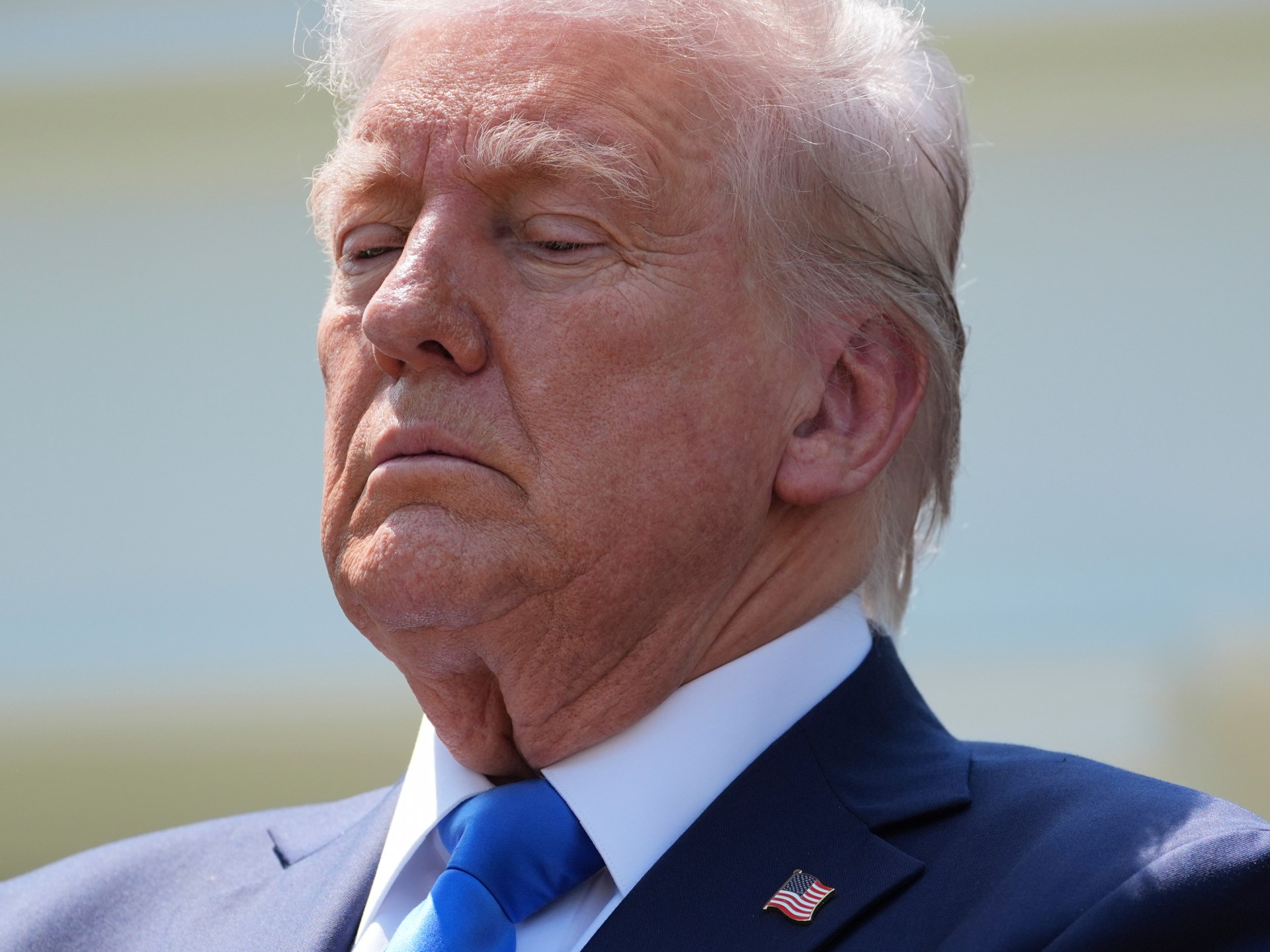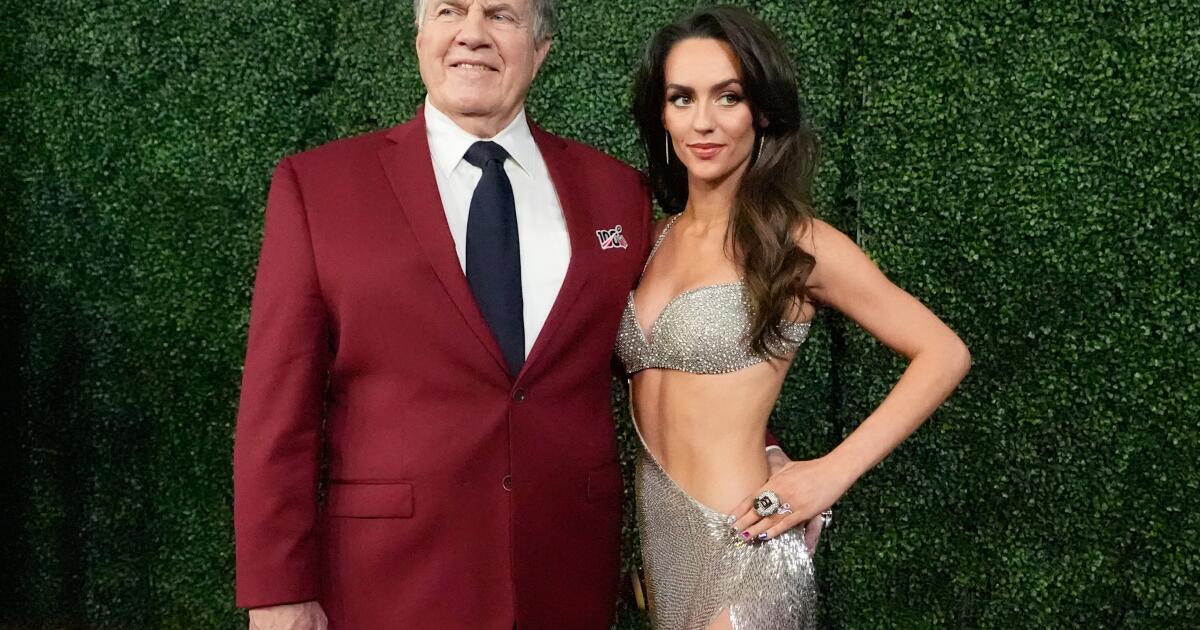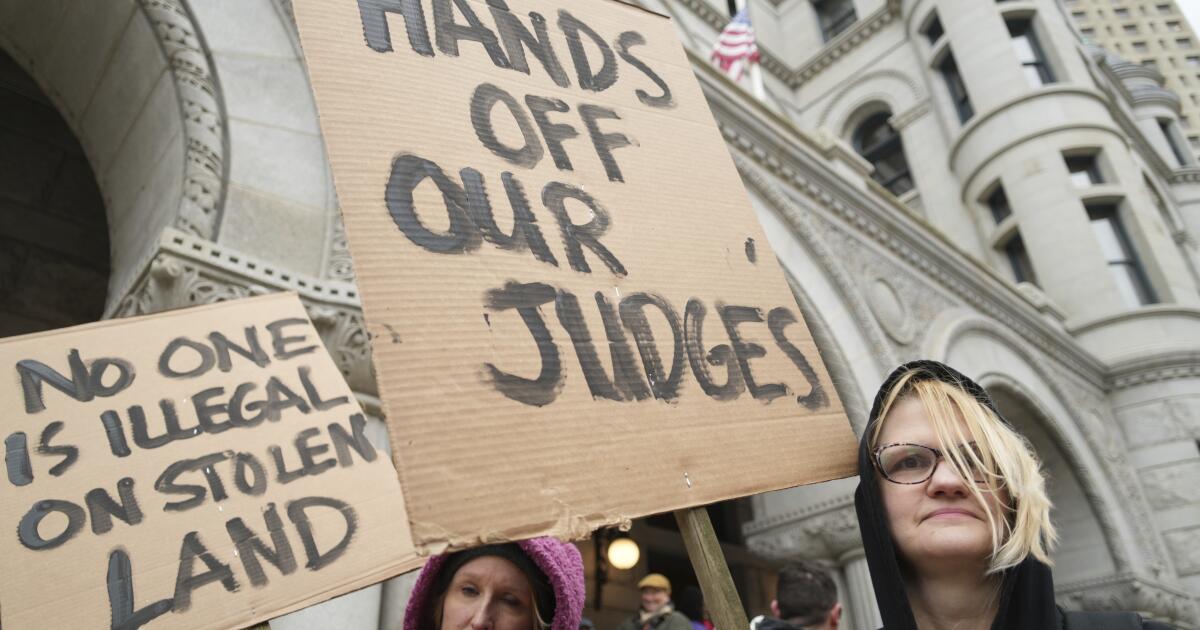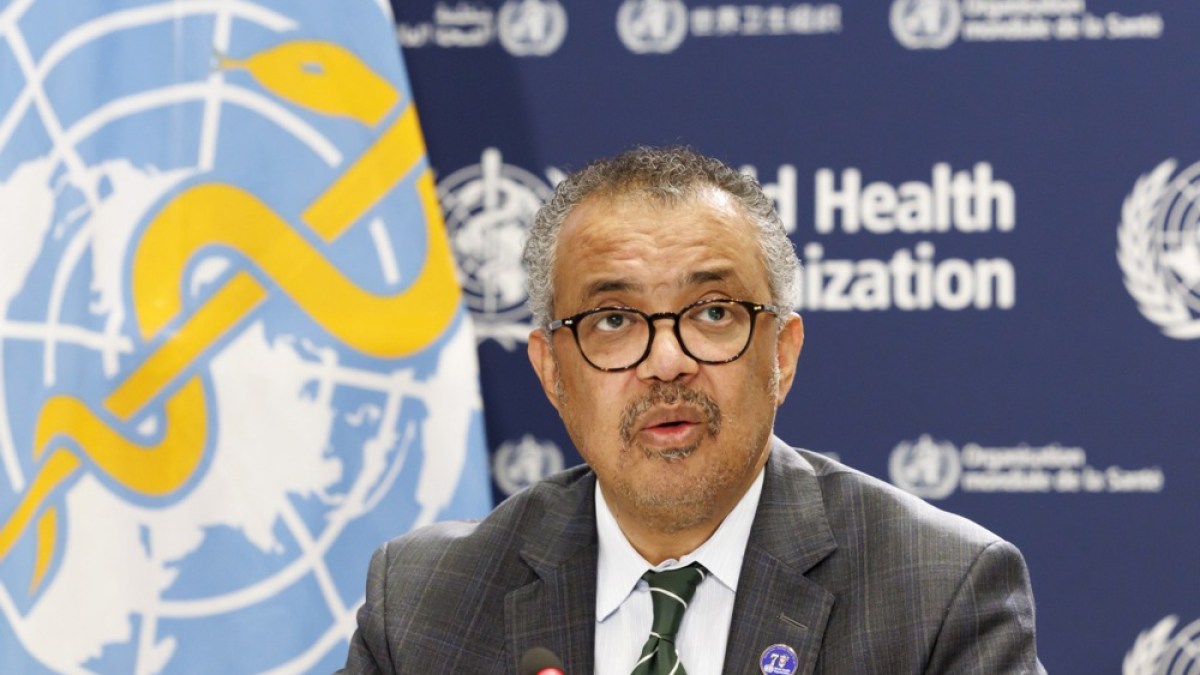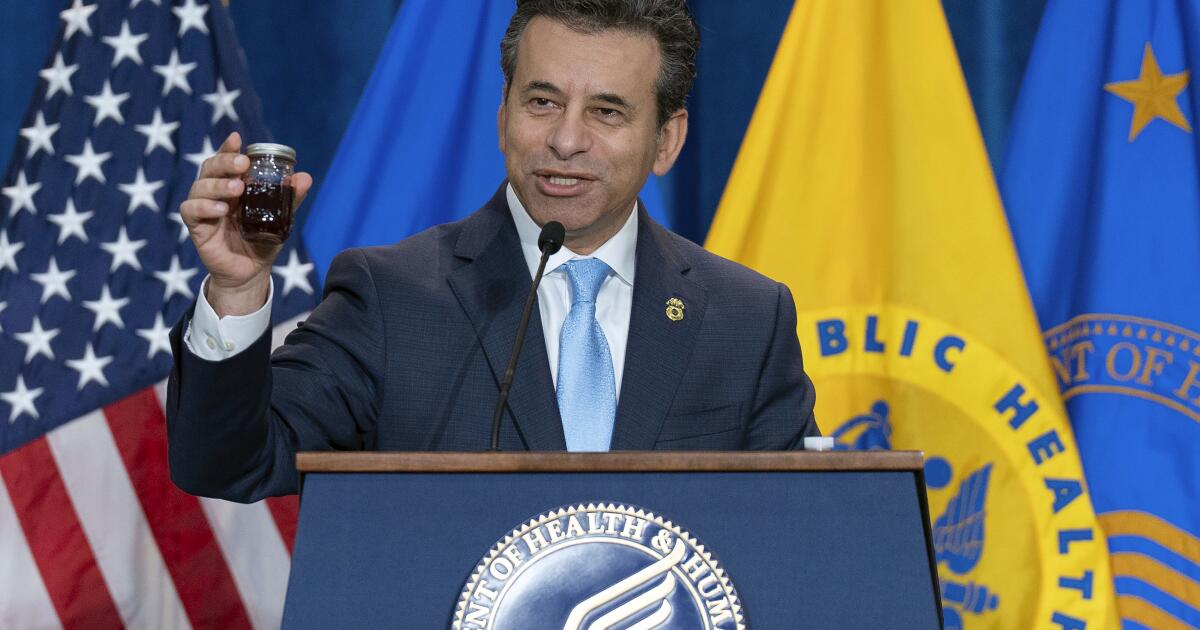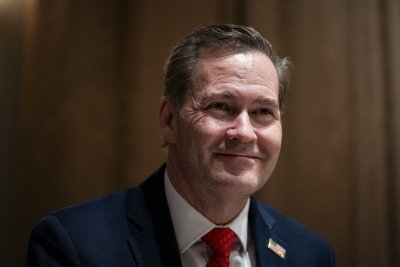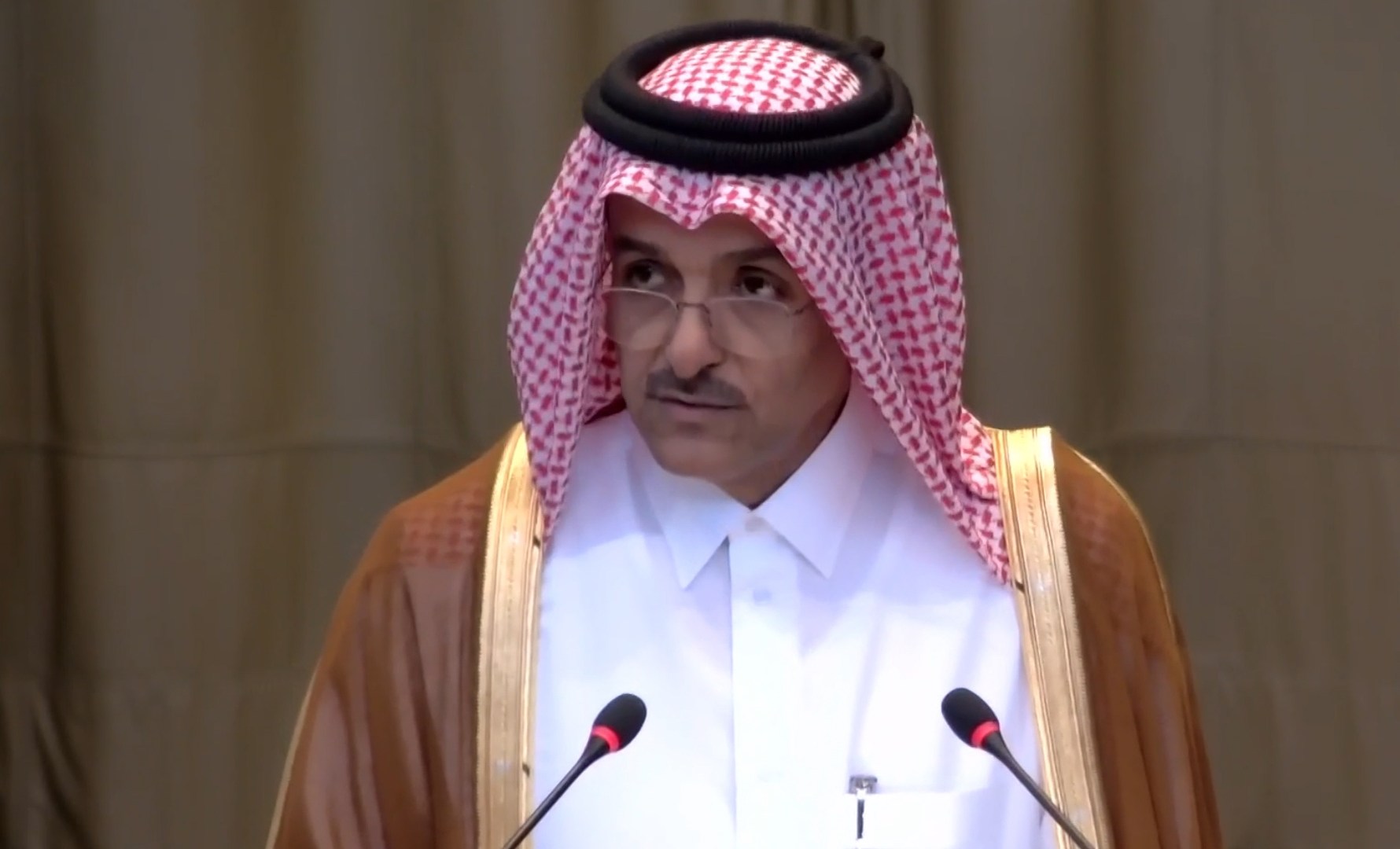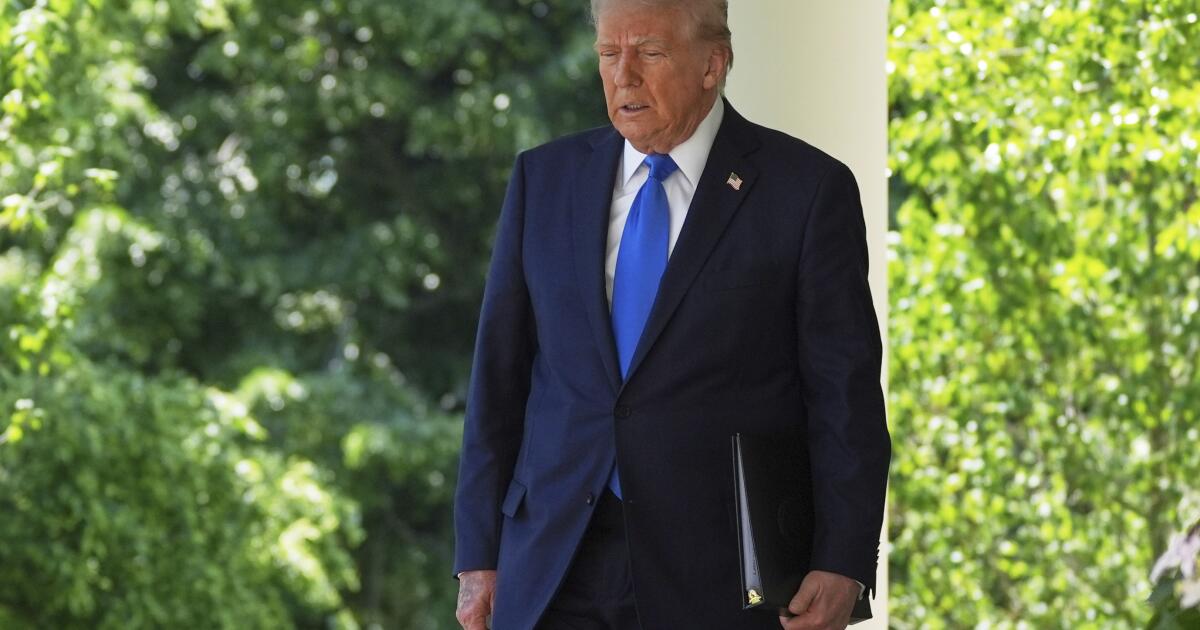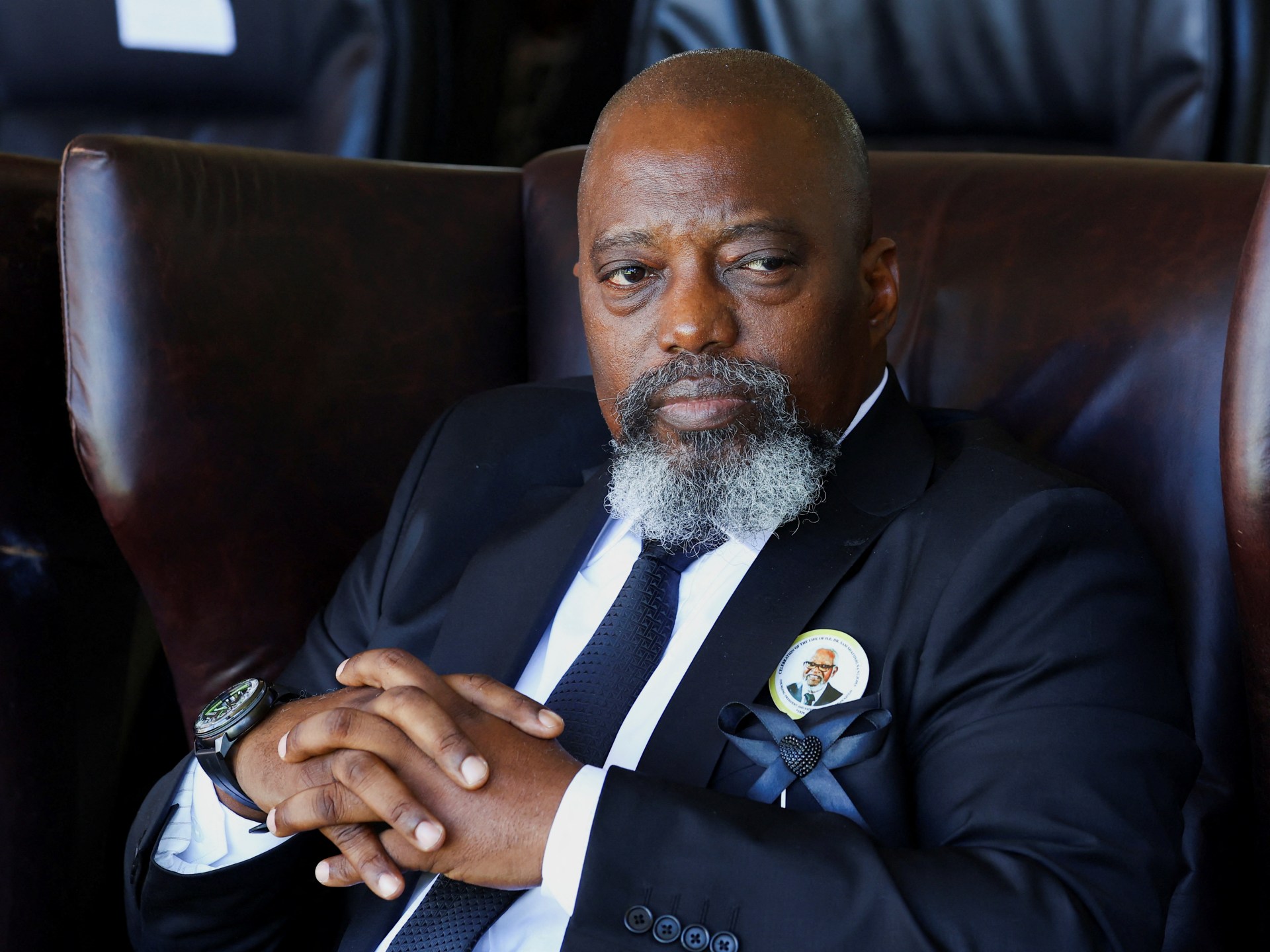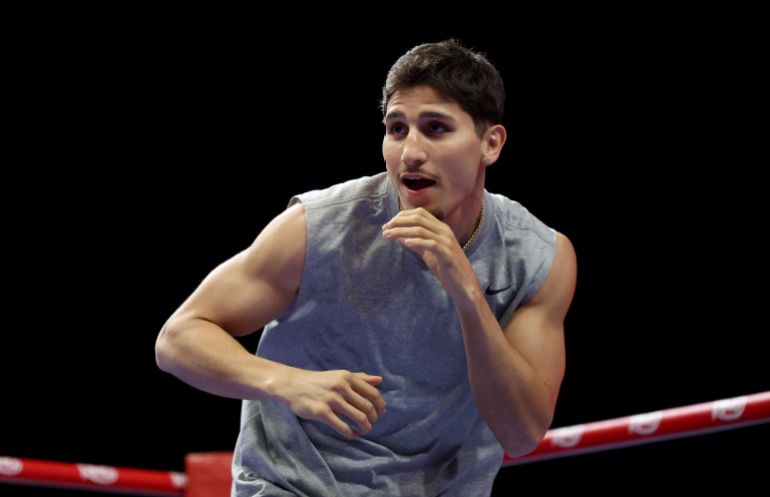Did Bill Belichick, a 73-year-old intransigent, forever controlling-the-narrative football coach with a record six Super Bowl titles, seemingly cede the reins to his girlfriend, 24-year-old former cheerleader Jordon Hudson?
So many questions and so many attempted answers. Let’s survey the relationship that has dominated the headlines this week.
Who is this couple and why do people care about them?
Hudson was born in Hancock, Maine, a speck on the map of 2,500 people best known as the home of Wild Ray’s “Chainsaw Sawyer Artist Live Show.” She has said on social media that she hails from several generations of fishermen.
A former Bridgewater State University and East Celebrity Elite squad cheerleader, Hudson competed for Miss Maine USA the last two years and explained why on social media.
“As the daughter of displaced fishermen, I care to use my voice to protect the fleeting tradition and heritage of Maine fishing families, to prevent others from going through the same plight as what mine had to go through,” Hudson wrote on Instagram, where she has nearly 100,000 followers.
After graduating, Hudson was employed for a year as social media ambassador for the clothing company Rebel Athletic. She said she met Belichick in 2021 and they began dating two years later.
Belichick was an NFL head coach for 29 years, including 24 with the New England Patriots, whom he led to nine Super Bowls, winning six. Widely acknowledged as the greatest coach in NFL history, Belichick will begin his first season as a college head coach this fall at the University of North Carolina. He signed a five-year, $50-million deal and hired his two sons, Steve and Brian, as assistant coaches.
CBS’ ‘How did you guys meet’ question
Belichick consented to an interview with “CBS Sunday Morning,” ostensibly to promote his book, “The Art of Winning: Lessons From My Life in Football,” scheduled to be released Tuesday. About six minutes into the eight-minute segment, interviewer Tony Dokoupil mentions Hudson in a voiceover, saying: “Jordon was a constant presence during our interview.”
The interview proceeds with a shot showing Hudson seated at a desk in front of a monitor a few feet from Belichick and Dokoupil.
“You have Jordon right over there, everybody in the world seems to be following this relationship,” Dokoupil said, with the camera locked on Hudson seated off the set. “How did you guys meet?”
“We’re not talking about this,” Hudson loudly blurts out before Belichick can respond. It was one of several instances where Hudson interrupted the interview.
Why the uproar with Hudson interrupting the interview?
The incident was unexpected — shocking, even — because for at least two decades, Belichick was the master of stonewalling reporters, steering interviews and giving snarky responses to questions he didn’t appreciate.
Does he suddenly require someone to come to his rescue or did that particular question touch a nerve with Hudson?
The Athletic pointed out that Belichick had his defiant chops intact earlier in the interview when Dokoupil asked him why Patriots owner Robert Kraft wasn’t mentioned in the book. The relationship between the men was strained for years and Kraft asserted that he fired Belichick in early 2024.
Dokoupil: “I have to ask about Robert Kraft … 24 years together, six Super Bowls. Unless I’m wrong, he’s not in this book. How come?”
Belichick: “He’s not. Well, again, it’s about my life lessons in football, and it’s really more about the ones I experienced directly.”
Dokoupil: “He’s not even in the acknowledgment section.”
Belichick, after a pause: “Correct.”
Dokoupil: “Do you feel like you were treated with dignity and respect when you were let go by Robert Kraft?”
Belichick: “Yeah, well, it was a mutual decision for us to part ways.”
Dokoupil: “He said ‘fired.’”
Belichick: “It was a mutual decision.”
Why did Belichick issue a statement after the CBS interview?
Belichick issued an internal email after the CBS interview and ensuing uproar, saying he expected the focus to be on the book and that “unrelated topics” took him by surprise. Hudson shared the email on Instagram, accompanied by the Taylor Swift song “Look What You Made Me Do.”
“I don’t think this is fantastic, but it probably will hype the book, which is clearly the ongoing theme here,” Belichick’s email starts. “This is about what I expected from the media.
“We went through how important it was for me to put ‘I f— up’ in the book, and of course, that is the feature of this article — which is mostly about admitting mistakes and talking about a Super Bowl mistake. I am fine with putting mistakes in the book, but I am certainly not surprised that of 260+ pages, that is what they would highlight.
“I have, at times reluctantly, gone along with the title, cover, and language in the book. I am not going to be the conductor of a hype train in the book promotion — we have enough hype to work with. I hope we can get on the same page in promoting the book authentically.”
Belichick later Wednesday released a statement through North Carolina, saying the CBS interview was “selectively edited” and suggested a “false narrative.” He also said that he “clearly communicated” with his publicist at Simon & Schuster that promotional interviews would focus only on the book’s contents.
“Unfortunately, that expectation was not honored during the interview,” Belichick said in the statement.
CBS later released a statement saying that the agreement was for a “wide-ranging interview.”
“There were no preconditions or limitations to this conversation,” the statement read. “This was confirmed repeatedly with his publisher before the interview took place and after it was completed.”
How did Hudson and Belichick meet?
Hudson and Belichick were seated next to one another on a flight from Massachusetts to Florida in February 2021. Their meeting was documented through photographs of them and of his autograph on the then-21-year-old’s “Deductive Logic” college textbook.
They were seen together in public beginning in 2023 and attended former quarterback Tom Brady’s Patriots Hall of Fame induction ceremony in June. A month earlier, Brady and former Patriots tight end Rob Gronkowski zeroed in on Belichick during “The Roast of Tom Brady” on Netflix in May 2024 with good-natured teasing for his and Hudson’s nearly 49-year age difference.
Said Gronkowski: “Coach, you used to talk about Foxborough High School when we sucked. But now I know why you were so obsessed with Foxborough High School: You were scouting your new girlfriend.”
Added Brady: “When somebody asked me which [championship] ring was my favorite, I used to say, ‘The next one.’ Now that I’m retired, my favorite is that Ring camera that caught Coach Belichick slinking out of that poor girl’s house at 6 a.m. a few months ago.”
Snoop Dogg worked in his own shot during his opening monologue at the NFL Honors awards show in February, with Belichick and Hudson in the audience. The rapper was joking about how long he’s been a football fan, saying, “I remember, what was it — Bill Belichick’s girlfriend wasn’t even born yet.”
How involved is Hudson in Belichick’s professional life?
The Athletic obtained emails through an open records request that document Belichick requesting that Hudson be copied on certain correspondence at North Carolina. The 44 pages of emails address his concerns about social media attacks and the optics of hiring his son, Steve, as defensive coordinator. Hudson is not an employee of the university, according to the public records request.
“It is really worth emphasizing the point that Steve has the experience of being a COLLEGE defensive coordinator and will bring a plethora of knowledge to the coaching staff,” Hudson wrote of the former defensive coordinator at the University of Washington.
Hudson’s involvement included a request that staff scrub negative comments about Belichick on the football page of the university website.
“Is there anyone monitoring the UNC Football page for slanderous commentary and subsequently deleting it / blocking users that are harassing BB in the comments?” Hudson asked Feb. 13.
Former Patriots players Julian Edelman and Gronkowski defended Hudson on their “Dudes on Dudes” podcast Wednesday, saying she was “working with Coach Belichick in the professional world” as his publicist. Comedian Nikki Glaser supported that stance in a comment shared to Instagram, writing, “100% this. She’s acting as his publicist. Publicists do this during interviews. People are out for blood.”
Jennifer Schmitt, however, responded by shading her father-in-law’s girlfriend: “Publicists act in a professional manner and don’t ‘storm’ off set delaying an interview,” wrote Schmitt, who’s married to Steve Belichick.
The Athletic also reported that Hudson “played an instrumental role” in stopping the production of a “Hard Knocks” docuseries on the North Carolina program this fall only a few days after an agreement had been reached. In a December 2024 email to North Carolina officials, Hudson identified herself as the chief operating officer of Belichick Productions, although the Athletic could not find evidence of the company’s existence.
NFL Films was scheduled to begin filming March 1, but two days later, the NFL sent an email to North Carolina’s counsel confirming that showmakers “will not proceed with the production of the Belichick project.”
Was Hudson prepared to defend Belichick?
Hudson seemed to brace herself in December for something like this current kerfuffle, writing on her Instagram Stories: “Nothing changed for us in 2024 except for ‘public knowledge’: yet, somehow everything changed. Going strong. I can’t wait to take punches for you in 2025. Keep swinging, Keyboard Warriors. Your illusion of righteousness only fuels my authenticity.”
A different view was articulated by Athletic columnist Steve Buckley, who wrote Wednesday:
“If the plan here was to portray Belichick as cool, what with his social media-savvy girlfriend fending off the old-school, on-set question asker, then the plan failed. Belichick instead came across as somebody who needed saving. And it’s hard watching this interview while defending Belichick as the ever-vigilant micromanager who misses nothing.
“Will this interview inspire the biggest and best recruits to take their talents to Chapel Hill? Doubt it. Will it help get Belichick back on the radar for a head coaching job in the NFL? That’s looking less likely.
“There used to be a Bill Belichick ‘brand.’ Grumpy. Rumpled. Genius. Now there’s a Bill Belichick-Jordon Hudson brand. We’re on to ‘awkward.’”

